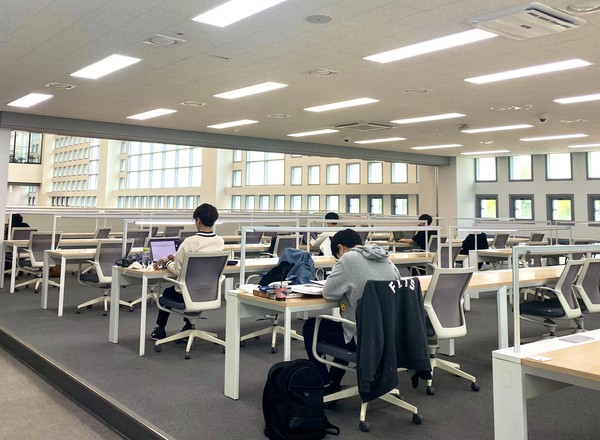On April 6, Executive Vice President Kwang Hyung Lee officially announced three different methods of substituting offline midterm exams. As the COVID-19 situation gradually became more serious, the shift to online classes raised many concerns, and the requirement for changes to midterm administration was undoubtedly the greatest. So far, the majority of classes have agreed upon how their midterms are going to be conducted.

The first method is replacing midterm exams with additional assignments. Various courses such as Calculus II (MAS102) and Circuit Theory (EE201) have decided to cancel midterm exams and use homework assignments instead. Second, some courses decided to administer online live closed-book midterm exams. For example, students taking Classical Latin (HSS226) will be taking their midterm exams via Zoom. The third option is through online open-book exams. Courses such as General Biology (BS120) will upload the exam on KLMS and students will have to submit their exam papers in 24 hours.
Each of these options come with different concerns, and the KAIST Undergraduate Association (UA) has summarized potential issues of each suggestion. Regarding the first method of replacing midterms with assignments, the UA claims there are three main weaknesses. Firstly, assessing students by homework could in fact be a comparison of who can find more information online rather than a comparison of what they actually know. There is no way of hindering students from using online resources to gain unfair advantages over others. Next, many students may be flustered by the numerous changes in the course syllabus. Before course registration, students read the syllabus to prepare, so an abrupt change from the original course plan may be problematic. Lastly, continuing online courses in such a way that final exams also need to be replaced by homework assignments may be against school policy, as Article 48 of the Regulations of KAIST indicates that final exams must be administered.
For the second method of online closed book exams, the greatest concern is indeed cheating. Unless the examinee is clearly showing his or her surroundings with multiple cameras, it is nearly impossible to detect potential cheating. Some students claim that people with multiple monitors can display textbooks out of the camera’s sight and gain an unfair advantage. As a result, some classes are requiring students to display both their hands and their surroundings with two or more cameras. However, not all students have multiple devices or cameras to clearly display their environments, and unstable internet connection could be troublesome for both the students and TAs.
Lastly, the third method of online open book exams is deemed the best option by the UA. Although academic dishonesty may still happen, at least an open book environment can greatly reduce the overall impact that cheating may cause to the grading curve. However, concerns over students discussing with each other and searching online still persists. Moreover, courses where memorization plays a big role in content may not be able to administer closed book exams.
Due to the uncertainties of midterm exams causing confusion and concerns among KAISTians, the KAIST UA requested that lecturers, by April 29, finalize two potential syllabi for each course — one for the case that online courses continue further and the other for the possibility that offline courses resume. The UA’s goal is to provide students with coherent course information before May 1, the last day of course add/drop period. Initially the updates were to be released by April 17, but the date continued to be postponed. Although KAIST has done well in incorporating student feedback, the students call for the school to be more decisive and coherent in delivering updates and additional information about course management.

